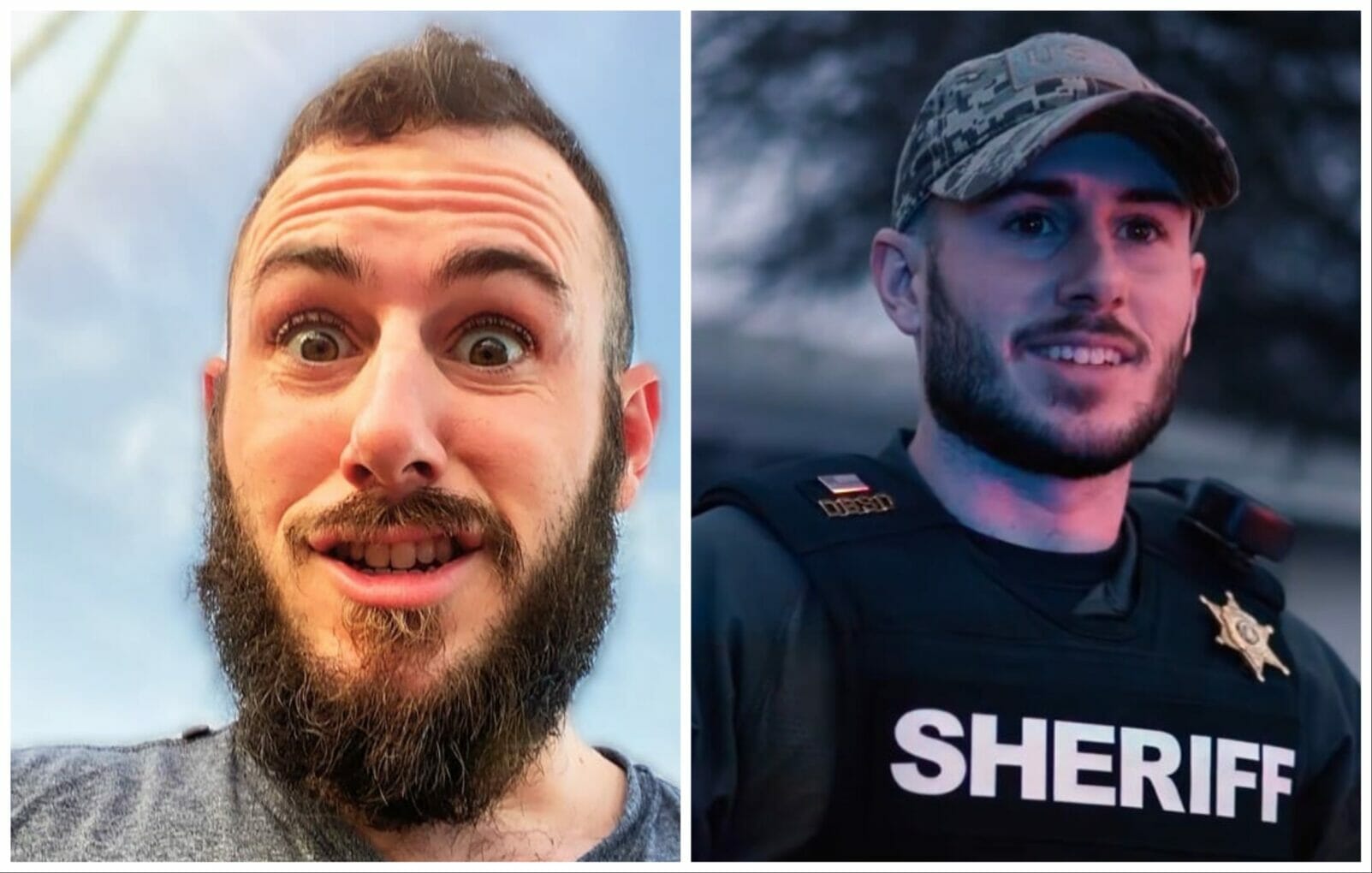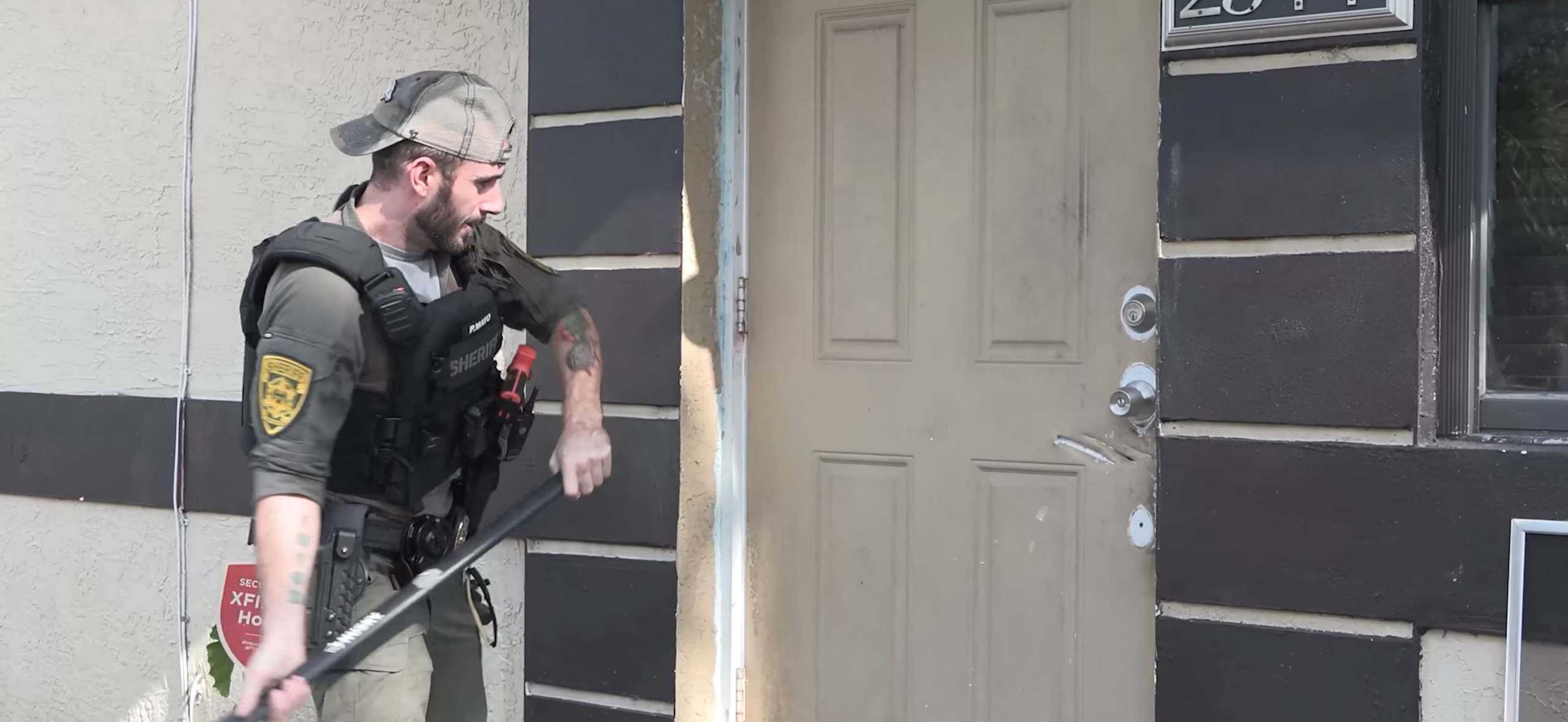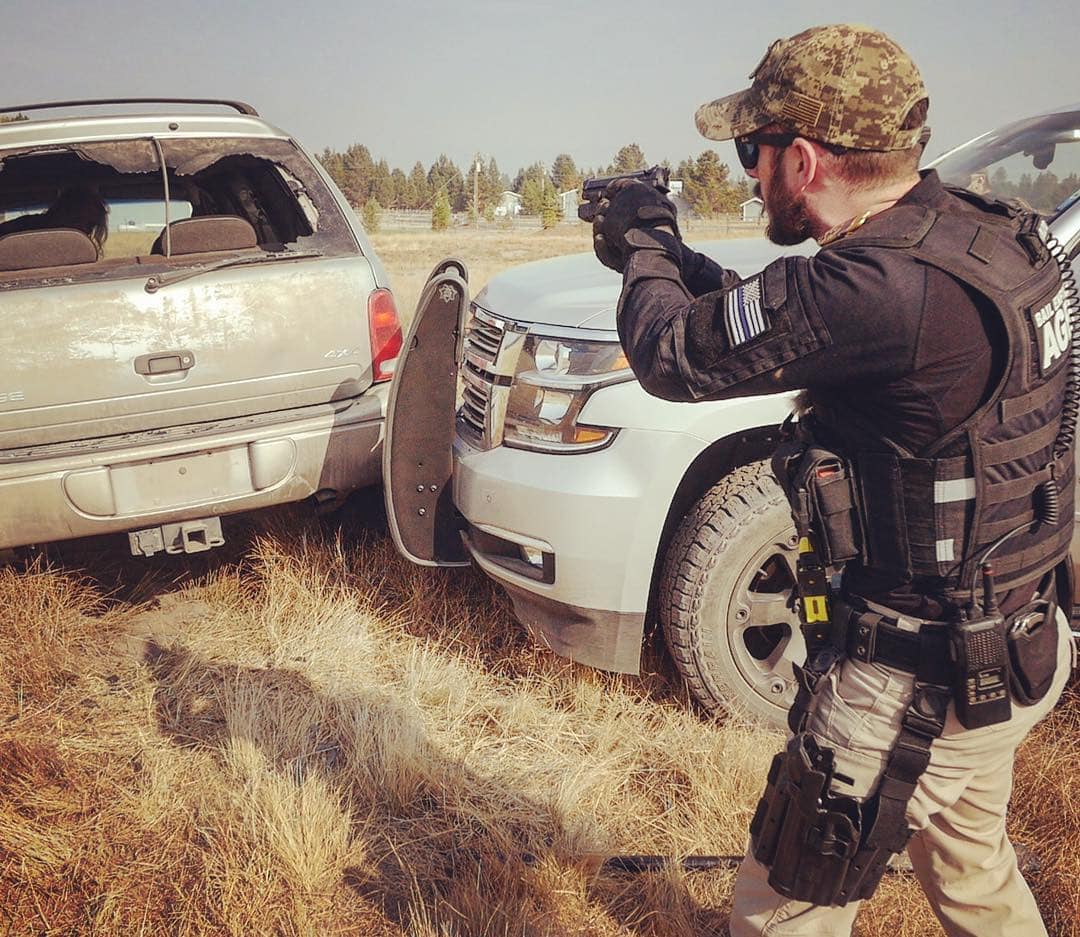Is Patty Mayo Real? Unmasking The Truth Behind The Viral Sheriff
In the vast and often perplexing landscape of online entertainment, few figures have sparked as much debate and confusion as Patty Mayo. For years, viewers have been captivated by his high-octane videos, seemingly depicting real-life arrests, investigations, and dramatic confrontations. The central question that consistently echoes across forums and comment sections remains: is Patty Mayo real, or is his world an elaborate work of fiction? This article delves deep into the persona, the content, and the legal implications surrounding this internet phenomenon, aiming to provide clarity and separate fact from the compelling fiction that has defined his online presence.
Navigating the blurred lines between reality and entertainment on platforms like YouTube can be challenging, especially when creators craft narratives so convincing they mimic genuine scenarios. Patty Mayo stands as a prime example of this phenomenon, having built a massive following on the premise of being a legitimate law enforcement officer operating under the guise of a "bounty hunter" or "private investigator." Understanding the true nature of his operations is crucial not only for curious viewers but also for comprehending the broader implications of content that blurs ethical and legal boundaries, particularly when it touches upon sensitive areas like law enforcement and public safety.
Table of Contents
- The Enduring Question: Is Patty Mayo Real?
- Who is Patty Mayo? A Brief Biography
- The Fictional World of DBSO: Unpacking the Evidence
- The Legalities of "Police" Impersonation and Deception
- Understanding the "Evidence" in Patty Mayo's Videos
- The Financial Side: Checks, Banks, and Hypotheticals
- The Impact of Fictional Content on Public Perception
- The Verdict: Is Patty Mayo Real?
The Enduring Question: Is Patty Mayo Real?
The internet is a melting pot of information, entertainment, and sometimes, outright deception. For years, the character known as Patty Mayo has captivated millions with his "bounty hunter" videos, leading many to wonder: is Patty Mayo real? His content often features dramatic confrontations, "arrests," and intense stakeouts, all presented with a veneer of authenticity that has blurred the lines for a significant portion of his audience. This constant questioning highlights a broader challenge in the digital age: discerning genuine reality from meticulously crafted narratives. While the thrill of his Dutchberry Sheriffs Office (DBSO) show is undeniable, the fundamental truth about its nature is critical for understanding its place in online media. The debate over whether his actions are legitimate or purely for entertainment purposes forms the core of his appeal and the controversy surrounding him.Who is Patty Mayo? A Brief Biography
Patty Mayo, whose real name is Patrick Kevin Thomas, rose to prominence on YouTube by portraying himself as a no-nonsense bounty hunter operating in various parts of the United States, most notably in a fictionalized version of Central Oregon. His videos, often filmed with a gritty, documentary-style aesthetic, depict him tracking down fugitives, engaging in tense standoffs, and "apprehending" individuals. This persona, combined with high production values and a charismatic on-screen presence, quickly garnered a massive subscriber base. His content is designed to evoke the feeling of a real-life law enforcement show, complete with dramatic music, quick cuts, and often, the apparent cooperation of local authorities, which further blurs the lines for viewers. While his online character is well-defined, his personal life outside of the persona is less publicly known, adding to the mystique.Personal Data & Biodata Table
| Attribute | Detail |
|---|---|
| Real Name | Patrick Kevin Thomas |
| Online Alias | Patty Mayo |
| Primary Content | "Bounty Hunter" and "Law Enforcement" style videos |
| Known For | Dutchberry Sheriffs Office (DBSO) Show |
| Location (Fictional) | Central Oregon (fictional town) |
| Platform | YouTube |
| Genre | Action/Drama, Reality-style Entertainment |
The Fictional World of DBSO: Unpacking the Evidence
The cornerstone of Patty Mayo's online empire is his "Dutchberry Sheriffs Office" (DBSO) show, which is set in a fictional central Oregon town. This critical detail is often overlooked by casual viewers but is paramount to understanding the true nature of his content. **Paddy Mayo's content is fictional.** This statement, corroborated by various sources including a page on legit.ng, is the definitive answer to the question of whether is Patty Mayo real in the capacity he portrays. The elaborate setup, complete with "suspects" and "arrests," is carefully choreographed for entertainment purposes. The actors involved in his videos are often paid participants, and the scenarios are scripted. While the videos may appear incredibly convincing, designed to look like authentic law enforcement operations, they are, in essence, a form of performance art. The dramatic confrontations, the seemingly dangerous situations, and the "legal" proceedings are all part of a constructed narrative. The very name "Dutchberry Sheriffs Office" itself hints at its fabricated nature, as no such official law enforcement agency exists. This distinction is vital because it separates his content from genuine journalistic or reality television that purports to show unscripted events. The entire premise relies on the audience's willingness to suspend disbelief, or perhaps, their genuine confusion about the reality of what they are witnessing.The Legalities of "Police" Impersonation and Deception
The fictional nature of Patty Mayo's content raises important questions about the legal boundaries of impersonation and deception, especially when it involves portraying law enforcement. In the United States, impersonating a police officer is a serious crime, typically a felony, with severe penalties. However, Patty Mayo's team has generally maintained that they operate within legal limits, often stating that their "arrests" are not actual arrests but rather citizens' arrests or consensual detentions, or simply part of a scripted performance where all participants are aware. It is common knowledge that American police are allowed to lie to a suspect during an interrogation, a tactic known as "police deception." However, there are limits to how far they can go. This may vary from jurisdiction to jurisdiction; for example, in Indiana in the US, police deception is generally allowed as long as it doesn't coerce a confession or violate due process. The crucial difference here is that real police officers operate under specific legal frameworks and authority, whereas Patty Mayo does not. His portrayal, while convincing, lacks the actual legal backing of a badge. The distinction between a fictional portrayal and actual impersonation hinges on intent and whether a reasonable person would believe the individual to be a genuine officer. If a defendant is arguing that they were coerced by someone they believed to be a real officer, the context becomes critical. While Patty Mayo's content is fictional, the line between entertainment and potential legal misrepresentation can become thin if not handled carefully, especially if viewers or participants genuinely misunderstand the nature of the interaction.When Does Deception Cross the Line?
The legal line for deception, particularly in the context of law enforcement, is complex. For actual police, deception is permissible within limits, primarily to elicit information or confessions, but it cannot involve threats, promises, or actions that violate a suspect's rights. For private citizens or entertainers, the line is drawn much more strictly. Creating an online persona, for example, like creating an account name "not the real Abraham Lincoln" using a famous politician's image, is generally acceptable as long as it's clearly understood to be fictional and not intended to defraud or mislead. However, if that persona then engages in activities that could be construed as official, such as issuing fake "arrests" or demanding money under false pretenses, it could cross into illegal territory like fraud or impersonation. The law is written to take the public servant's actual intentions out of the equation and instead ask whether the actions themselves constitute a crime, such as bribery or fraud, regardless of what the individual might claim their internal motivation was. This principle applies to anyone, whether they are a public servant or a private individual creating online content.Understanding the "Evidence" in Patty Mayo's Videos
A key aspect of Patty Mayo's persuasive content is the way it presents "evidence." The videos may also serve as evidence that Patty Mayo's arrests are legal and that any claims of abuse made by the detained are demonstrably false. This statement, often put forth by his supporters or implied within his narrative, is designed to lend credibility to his operations. However, it's crucial to reiterate that the context is fictional. In a real legal setting, evidence is subject to strict rules of admissibility and scrutiny. A video depicting an "arrest" by a private citizen or an entertainer, even if it appears to show consensual compliance, does not automatically confer legality upon the action itself if it falls outside the bounds of genuine law enforcement or citizen's arrest statutes. For instance, if someone genuinely believed they were being arrested by a real officer, their compliance might be based on that belief, not on a voluntary agreement to participate in a skit. While Patty Mayo's team asserts that all participants are aware it's fictional, the visual presentation is so convincing that it can easily mislead an external audience. The "evidence" in his videos serves the purpose of narrative progression and entertainment, not as proof of legitimate legal actions. The entire structure of his show relies on creating a believable illusion, where the drama of a real arrest is replicated without the actual legal authority or consequences. This distinction is vital for viewers to grasp the difference between compelling storytelling and actual reality, especially when the subject matter touches upon the sensitive domain of law and order.The Financial Side: Checks, Banks, and Hypotheticals
Beyond the dramatic "arrests," the world of Patty Mayo occasionally intersects with real-world financial elements, further adding to the confusion about his legitimacy. For instance, there have been anecdotes from viewers or participants, such as "I received a check in the mail for about $1000, It's from Huntington National Bank, and the issuer is Saylor V." Such instances raise questions about the financial transactions behind the scenes. Are these payments for participation in the skits? Or are they part of a broader, more complex financial operation related to his online persona? While receiving a check from a legitimate bank like Huntington National Bank might suggest a level of officiality, the context of its issuance – whether it's for services rendered in a fictional production or something else – is crucial. The financial aspects of such online ventures can be complex. For example, the legal definition of terms like "hypothecate" – which crudely means to subject real property to an encumbrance known as a hypothec as security when borrowing money – highlights the intricate nature of real financial dealings. A hypothec is an alternative to a traditional mortgage, allowing assets to be used as collateral without transferring ownership. While this specific term might not directly apply to Patty Mayo's daily operations, it serves as an example of how real-world financial and legal concepts are far more nuanced than what might be portrayed or implied in entertainment content. The presence of real-world financial instruments, even if for legitimate payments related to a fictional show, can inadvertently contribute to the perception that the entire operation is "real" in a way it is not.The Illusion of Authority: Pardons and Immunity
The concept of authority, both legal and perceived, is central to understanding the Patty Mayo phenomenon. In a real legal system, questions like "Can the Vice President of the United States issue pardons while exercising the powers of the presidency under the 25th Amendment?" or "Can a person who testifies before Congress be immune from civil action resulting from their testimony?" delve into the very specific and limited powers of real government officials. These are complex legal questions with precise answers rooted in constitutional law and statutory provisions. The illusion of authority presented by Patty Mayo's character, while entertaining, operates entirely outside these established legal frameworks. His "arrests" and "investigations" lack any genuine legal standing. The law is written to take the public servant's actual intentions out of the equation and instead ask whether the money or action constitutes a crime, such as bribery, based on objective criteria, not subjective intent. This principle applies universally. The dramatic portrayals in his videos, therefore, should not be confused with the intricate and strictly defined powers held by actual law enforcement or government officials. The stark contrast between the defined legal powers of real authorities and the self-proclaimed authority of a fictional character is a key takeaway for viewers trying to ascertain if is Patty Mayo real in any official capacity.The Impact of Fictional Content on Public Perception
The immense popularity of Patty Mayo's content, despite its fictional nature, underscores a significant trend in digital media: the blurring of lines between entertainment and reality. When content is so convincingly produced that it mimics genuine events, it can have a profound impact on public perception, particularly concerning sensitive topics like law enforcement. Viewers, especially those less familiar with the nuances of legal procedures or media production, might genuinely believe that what they are seeing is an authentic depiction of a "bounty hunter" or private investigator operating outside the traditional police force. This can lead to several issues: * **Misinformation:** Audiences might develop a skewed understanding of how law enforcement operates, what constitutes a legal arrest, or the rights of individuals. * **Erosion of Trust:** If the fictional nature is not clearly understood, it could erode public trust in genuine law enforcement, or conversely, create unrealistic expectations about their capabilities. * **Ethical Concerns:** The dramatization of potentially dangerous situations, even if staged, raises ethical questions about the responsibility of content creators. The success of Patty Mayo's show highlights the audience's appetite for high-stakes, "reality-style" content. However, it also places a burden on creators to be transparent and on platforms to ensure that such content is clearly labeled to prevent widespread misunderstanding. The question of whether is Patty Mayo real is not just about one individual, but about the broader implications of how "reality" is consumed and interpreted in the digital age.The Ethical Dilemma of "Reality" Entertainment
The "reality" entertainment genre, whether on traditional television or online platforms, often grapples with an inherent ethical dilemma: how much staging and scripting is acceptable before it becomes deceptive? For creators like Patty Mayo, the appeal lies in the perceived authenticity and danger. However, when the subject matter involves law enforcement, the stakes are higher. Unlike a cooking show or a home renovation program, content depicting arrests and confrontations can influence public understanding of legal rights, police conduct, and public safety. The ethical responsibility falls on the creators to ensure that their pursuit of viral content does not inadvertently misinform or endanger their audience by promoting a false sense of reality. This includes clear disclaimers, transparent communication with participants, and a commitment to not actively deceive viewers about the fictional nature of the scenarios.The Verdict: Is Patty Mayo Real?
After examining the various facets of his online persona, the answer to the question "is Patty Mayo real?" in the context of being a legitimate, operating law enforcement officer or bounty hunter, is a resounding **no**. Patty Mayo's content is fictional. His thrilling Dutchberry Sheriffs Office (DBSO) show, set in a fictional Central Oregon town, is a meticulously produced entertainment series. While the videos are designed to look authentic, featuring dramatic scenarios and "arrests," they are scripted and involve paid actors or willing participants. Sources like legit.ng explicitly state the fictional nature of his content, and the legal principles governing police impersonation and deception underscore the fact that his operations exist outside the bounds of actual law enforcement. The financial transactions, such as checks from legitimate banks, are likely payments for participation in his productions, not evidence of real-world law enforcement operations. Patty Mayo is a performer, a content creator who has successfully built a compelling narrative that blurs the lines between reality and fiction for entertainment purposes. Understanding this distinction is crucial for viewers to appreciate his work as a form of creative storytelling rather than a genuine depiction of legal operations. In conclusion, while Patty Mayo has created an incredibly engaging and believable world, it is essential for viewers to remember that it is, at its core, a form of entertainment. The debate around "is Patty Mayo real" serves as a powerful reminder of the need for critical media literacy in the digital age. If you found this exploration of Patty Mayo's world insightful, consider sharing this article with friends who might also be curious about the truth behind the viral sheriff. Do you have thoughts on how online content blurs the lines of reality? Share your comments below! You might also be interested in exploring our other articles on media literacy and online entertainment.
Patty Effin Mayonnaise Real Name

What Happened To Patty Mayo? Revealed - OtakuKart

Who is Patty Mayo? Is it REAL or FAKE bounty hunter? Wiki